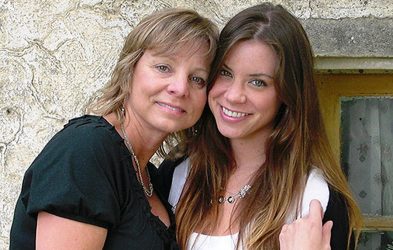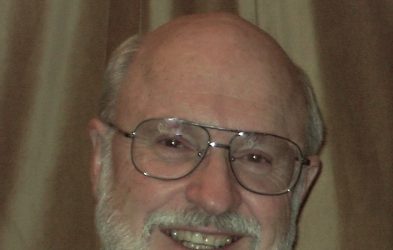By Karen Kaplan
The lower you go down on a trampoline, the higher you go into the air. Perhaps this dynamic of one extreme begetting another is at play in the heating up of opinions on assisted suicide. I think the more that technology allows life to be extended at all costs (literally and figuratively), the less we feel in charge of our final days. Hellish stories abound of health professionals keeping people alive by tortuous procedures who cannot communicate their potential wish to discontinue them. In other words, it is coercion. But assisted suicide can involve coercion as well.
Fear as Fuel
I think fear fuels both extremes. The futile treatments and withholding of pain medications which may shorten life is about the fear of death, whether originating from the one dying or their loved ones. It is an attempt to escape the fear rather than letting the person die. But the wish to legalize assisted suicide stems from the fear of facing the remaining days of a life so dreadful that it would be worse than death.
There is a middle ground despite the vested interests of some institutions and health care professionals to keep it hidden. There is an alternative to actively prolonging life or finding an escape clause in a death ahead of schedule. Rather than work to ban one extreme or the other, I think our efforts should be to make that middle ground so attractive that patients and their families will resort to the extremes less and less. (I feel the same way about abortion. I am not in favor of banning it. Instead, society should make alternatives available and attractive. In both cases, assisted suicide and abortion, I am talking about incentivizing life.)
Hospice as Middle Ground
While not a cure-all so to speak, hospice is that middle ground. How ironic that uninformed individuals think that going on hospice means “giving up.” I never have heard anyone refer to assisted suicide that way. If someone contemplating assisted suicide is reading this, then can you at least “give hospice a try” before going the “nonrefundable” route? See what the nurse can do about pain. See what the social worker and chaplain can do about feelings of guilt and depression regarding emotionally and financially depleted caregivers. See what the whole hospice team can do to join your search for any potentially remaining sources of meaning. Some unexpected reason for living may turn up. As for the other extreme, hospice is the gateway to appropriate pain relief such as morphine that other types of care preclude due to fear of legal consequences, addiction (obviously an irrelevant concern for terminal patients), or ignorance. It is also a safeguard against “treatments” that increase or prolong suffering. Not only are many if not all such treatments not allowed in order for patients to remain on hospice, the hospice team is available to address their or their loved one’s fears behind the desire to pursue such treatments.
As with any fears, the more we lay them bare, the more each of us will restore control of our destiny.
About the Author
Karen Kaplan in 1992 became one of the the first 200 female rabbis in the world. In 2007 she became a board-certified chaplain and served in hospices on the East Coast for 7 years; she now works at the Center for Hope Hospice in Elizabeth, New Jersey. She is the author of Encountering The Edge: What People Told Me Before They Died. Free of religious agendas, the book consists of true stories about her hospice patients and what they most cared about and believed in (the book is available on Amazon and wherever books are sold, as a softcover, ebook and starting in July 2015, as an audiobook; excerpts and reviews are available at publisher’s site). Karen is also pleased to announce the release of her audiobook version of Encountering the Edge. Karen also blogs at Offbeat Compassion.
This guest article about hospice as middle ground first appeared on Karen’s blog and we reprint it with her permission; the second part of the title and subheadings are ours. The text reflects the author’s views only, and we neither endorse or disapprove of its content but rather publish it to foster the conversation about end-of-life issues.
Read our open call for guest writers →


2 Comments.
wolf
this sentence doesnt make sense: The futile treatments and withholding of pain medications which may shorten life is about the fear of death…. It is an attempt to escape the fear.
withhold pain medications which may shorten life… is about fear of death? please fix the sentence to mean something sensible.
Peter Korchnak, Death with Dignity
Thanks for your feedback, Wolf. However, this is a guest article which reflects the views of its author and which we did not edit and are unable to edit after the fact.
Comments are closed.